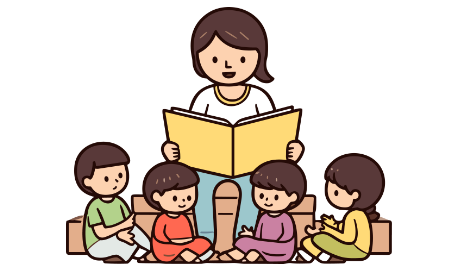|
||||
|
Teachers are assigned to deliver and/or support the processes, programs, and services for students who require enrichment and/or skill development programming through special education. Below are descriptors of the work of teachers in relation to special education programming. |
||||
|
Classroom/Subject Teacher - Classroom/subject teachers have expertise in prescribed curriculum and instruction. This includes modified prescribed courses and accommodations. It may also include intensive intervention (determined by the program planning team). Classroom/subject teachers consult and collaborate with specialist teachers regarding the teaching and learning of alternate programs, alternate courses, alternate curriculum, and expanded core curriculum in the common learning environment. |
 |
|||
|
Instructional Resource Teacher (IRT) - Instructional resource teachers have expertise in special education processes, programs, and services and support other teaching staff through consultation and collaboration. IRTs write and evaluate alternate programs, alternate courses, and alternate curriculum and teach/co-teach associated outcomes. They may also provide intensive intervention determined by the program planning team. An IRT may be part of a comprehensive assessment team. |
||||
|
School-based Reading Specialist - A reading specialist has expertise in the acquisition of foundational literacy skills. They support other teaching staff through consultation and collaboration. They may also provide intensive intervention determined by the program planning team for foundational literacy skills. |
 |
|||
|
Deaf and/or hard of hearing (DHH) Itinerant Teacher - A DHH itinerant has expertise in d/Deaf education and facilitates the personal, social, and intellectual development of students who have hearing loss. They support other teaching staff through consultation and collaboration; write, support, and evaluate expanded core curriculum; and support accommodations. A DHH itinerant may be part of a comprehensive assessment team and may lead comprehensive assessments specific to hearing loss. Blind and/or Visually Impaired (BVI) Itinerant Teacher - A BVI itinerant has expertise in vision loss education. They support other teaching staff through consultation and collaboration; write, support, and evaluate expanded core curriculum; and support accommodations. A BVI itinerant may be part of a comprehensive assessment team and may lead comprehensive assessments specific to vision loss. |
||||
|
Speech Language Pathologist (SLP) - An SLP is registered with the College of Audiologists and Speech Language Pathologists of Newfoundland and Labrador. An SLP assesses, consults, provides programming, and liaises with teachers and other program planning team members concerning students who present with communication difficulties. An SLP may be part of a comprehensive assessment team and may lead comprehensive assessments specific to expressive and receptive language. |
 |
|||
|
Educational Psychologist - Educational psychologists are registered with the Newfoundland and Labrador Psychology Board. They are part of a comprehensive assessment team and may lead inter-disciplinary comprehensive assessments. They also consult on child/adolescent development, behaviour, social-emotional learning and educational programming. |
||||
|
Guidance Counsellor - Guidance counsellors are part of a comprehensive assessment team and may lead inter-disciplinary comprehensive assessments. They also consult on child/adolescent development, behaviour, social-emotional learning and educational programming For more information on the roles of teachers in special education, see the Responsive Teaching and Learning Policy OR the Service Delivery Model on the Department of Education Website. |
 |
|||
|
||||


.png)
.png/Next%20(4)__100x94.png)
.png/Next%20(5)__100x94.png)